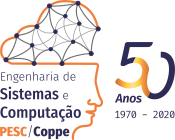Calendário de Eventos
|
4th FME Workshop on Formal Methods in Software Engineering (FormaliSE 2016)
to be held on 15 May 2016 in conjunction with
ICSE 2016 (May 14th-May 22th), in Austin, Texas, USA
http://www.formalise.org/
INTRODUCTION
The software industry has a long-standing and well-earned reputation for failing to deliver on its promises and it is clear that still nowadays, the success of software projects with the current technologies cannot be assured. For large complex projects, many approaches have proven inadequate to assure the correct behaviour of the delivered software, despite the efforts of the (often very skilled) software engineers involved. The lack of formalization in key places makes software engineering overly sensitive to the weaknesses that are inevitable in the complex activities behind software creation. It is an increasingly complex task to develope large software systems because the systems are huge, with very complex behaviour, and many algorithms employed today are "pushing the limits" of what people can comprehend. This is where formal methods (FMs) have a huge opportunity. The main goal of the workshop is to foster integration between the formal methods and the software engineering communities.
AREAS Of INTEREST include but are not limited to:
* integration of FMs in the software development life cycle
* ability of formal methods to handle real-world problems
* prescriptive/objective guidance in the use of FMs
* performance analysis based on formal approaches;
* formal methods in a certification context
* "lightweight" or usable FMs
* application experiences
* formal approaches to safety and security related issues
* cyber physical systems
* scalability of FM applications
* rigorous software engineering approaches and their tool support
* formal approaches to safety and security related issues
* case studies developed/analyzed with formal approaches
The PROGRAM features two keynotes (one by Pamela Zave of AT&T Labs Research and one by Don Batory, University of Texas at Austin), and presentations of submitted papers. The workshop finishes with a panel discussion, addressing the subjects that came up during the workshop.
SUBMISSIONS are limited to 7 pages using ACM Formatting Guidelines (see: http://www.acm.org/publications/article-templates/proceedings-template.html), must be unpublished original work and should not be under review or submitted elsewhere while being under consideration. PC members will review all submissions. Papers will be judged on the basis of their clarity, relevance, originality, and contribution to the field. Submissions must be in English and in PDF format through online upload to the workshop submission website at the following URL: https://www.easychair.org/conferences/?conf=formalise2016.
All ACCEPTED CONTRIBUTIONS will be PUBLISHED as an ICSE 2016 Workshop Proceedings in the ACM and IEEE Digital Libraries. The official publication date of the workshop proceedings is the date the proceedings are made available in the ACM Digital Library. This date may be up to two weeks prior to the first day of ICSE 2016. The official publication date affects the deadline for any patent filings related to published work. Authors of accepted papers are expected to register and present their paper at the Workshop.
IMPORTANT DATES are:
22 January 2016: submission deadline for workshop papers
19 February 2016: notification of acceptance/rejection to authors
26 February 2016: camera-ready copy deadline for workshop papers
15 May 2016: FormaliSE workshop in Austin, Texas, USA
OC/PC CHAIRS are Stefania Gnesi (ISTI-CNR, Italy) and Nico Plat (West IT Solutions and Thanos, The Netherlands). The OC/PC Chairs can be reached via e-mail: Este endereço de email está sendo protegido de spambots. Você precisa do JavaScript ativado para vê-lo.. If you intend to submit a paper you are invited to inform us in advance.
The PROGRAM COMMITTEE consists of:
* Keijiro Araki (Kyushu University, Japan)
* Andreas Bollin (Klagenfurt University, Austria)
* Ana Cavalcanti (York University, UK)
* Nancy Day (University of Waterloo, Canada)
* Ewen Denney (SGT/NASA Ames, United States)
* Cindy Eisner (IBM Haifa Research Laboratory, Israel)
* Alessandro Fantechi (University of Florence, Italy)
* Antonio Filieri (Imperial College, United Kingdom)
* Wolfgang Grieskamp (Google, United States)
* Jan Friso Groote (Eindhoven University of Technology, The Netherlands)
* Michaela Huhn (Technische Universitat Clausthal, Germany)
* Nicolas D'Ippolito (Universidad de Buenos Aires, Argentina)
* Peter Gorm Larsen (Aarhus University, Denmark)
* Marc Lawford (MacMaster University, Canada)
* Thierry Lecomte (ClearSy, France)
* Yves Ledru (Universite Grenoble Alpes, France)
* Axel Legay (INRIA Rennes, France)
* Antonia Lopes (University of Lisbon, Portugal)
* Tiziana Margaria (University of Limerick and Lero, Ireland)
* Ravidra Metta (Tata Consultancy Services, India)
* Henry Muccini (Universita degli Studi dell'Aquila, Italy)
* Kenneth Pierce (Newcastle University, UK)
* Sanjai Rayadurgam, (University of Minnesota, USA)
* Matteo Rossi (Politecnico di Milano, Italy)
* Thomas Santen (Microsoft, Germany)
* Laura Semini (Pisa University, Italy)
* Marjan Sirjani, (Reykjavik University, Iceland)
* Marcel Verhoef (European Space Agency, The Netherlands)







